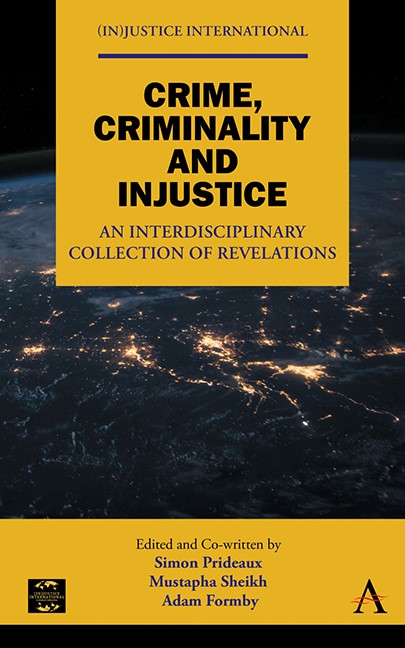Book contents
- Frontmatter
- Dedication
- Contents
- Acknowledgements
- List of Editors and Contributors
- Editor’s Introduction to the Book
- Part One Incarceration, Cultural Destruction and Ecocide: The Alienation of Ethnic Minorities, Nature and Indigenous Peoples
- Part Two The Impoverishment, Exclusion and Maltreatment of the Working Poor
- Part Three Disability, Poverty and Neglect
- Part Four Youth, Gender, Migration and Human Trafficking
- Concluding Remarks
- Index
Chapter Eight - Impact of Art and Sensory Experiences in the Physical Activities of Young People Affected by Profound Intellectual and Multiple Disabilities
Published online by Cambridge University Press: 14 November 2023
- Frontmatter
- Dedication
- Contents
- Acknowledgements
- List of Editors and Contributors
- Editor’s Introduction to the Book
- Part One Incarceration, Cultural Destruction and Ecocide: The Alienation of Ethnic Minorities, Nature and Indigenous Peoples
- Part Two The Impoverishment, Exclusion and Maltreatment of the Working Poor
- Part Three Disability, Poverty and Neglect
- Part Four Youth, Gender, Migration and Human Trafficking
- Concluding Remarks
- Index
Summary
Contextual Introduction
Artistic activities provide the possibility for self-expression, to help reinforce one’s sense of competence and enhance a general feeling of content in life (Eisenhauer 2007). That is also the case with those affected by profound intellectual and multiple disabilities (henceforth PIMD) to whom such activities are extremely enjoyable (Levy and Young 2020). However, their opportunities for recreational activities are limited by different social and cultural ideologies based on ableism, such as assumptions that physical strength is always essential to have capabilities for hobbies. Opportunities for meaningful recreational activities are much fewer for young people beset by PIMD, than for their non-disabled peers or for those with better functional abilities (Eriksson and Saukkonen 2021).
The aim of this chapter is to look at the role of artistic elements and sensory experiences in those physical activities that are currently provided for young people faced with PIMD. The study is a part of a three-year academic research project (2019–2022) dealing with opportunities of young people affected by PIMD to physical activities in their daily lives. It has been found out in the research that opportunities for these young people for recreational activities are often dependent on institutional practices of residential and disability services. For example, the practice of professional physiotherapy provides a possibility for physical exercise, while physical activities are enabled in sports events arranged in housing units (Eriksson and Saukkonen 2021).
Educational institutions, such as vocational schools, provided physical education according to the curriculum. Careful attention was paid to equal opportunities of children and young disabled people despite the level of their development. Various physical activities, such as adaptive sports were also provided for young PIMD afflicted people according to their interests and individual abilities. In edcational institutions they were also open to new, artistic types of sports activities, such as those undertaken in circus acts and other performative arts: an openness that enables schools to combine physical activities with drama education. As the role of arts has been often forgotten in the discussion on sports and physical activities of young people facing PIMD, this chapter provides an insight into the reality of their lives when such practices of physical recreation – in which artistic expression and multiple sensory experiences are crucial – are applied.
- Type
- Chapter
- Information
- Crime, Criminality and InjusticeAn Interdisciplinary Collection of Revelations, pp. 135 - 150Publisher: Anthem PressPrint publication year: 2023



